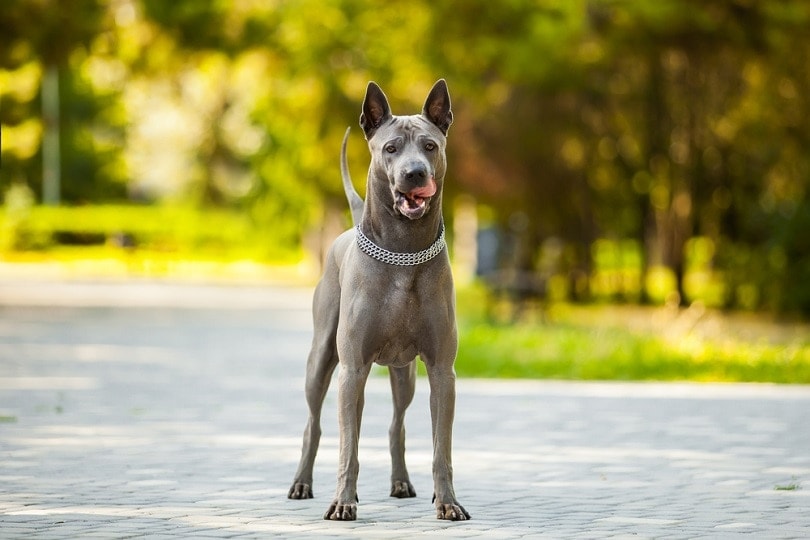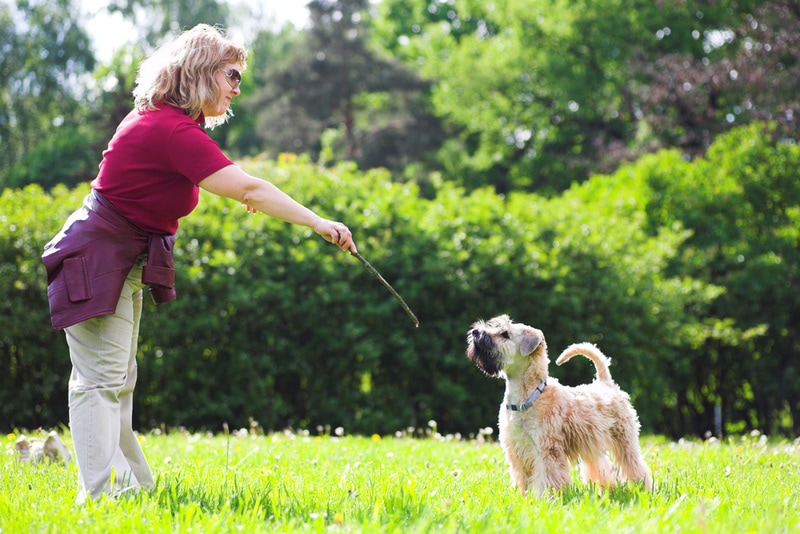Do Labradoodles Smell More Than Other Dogs? Reasons & Tips

Updated on
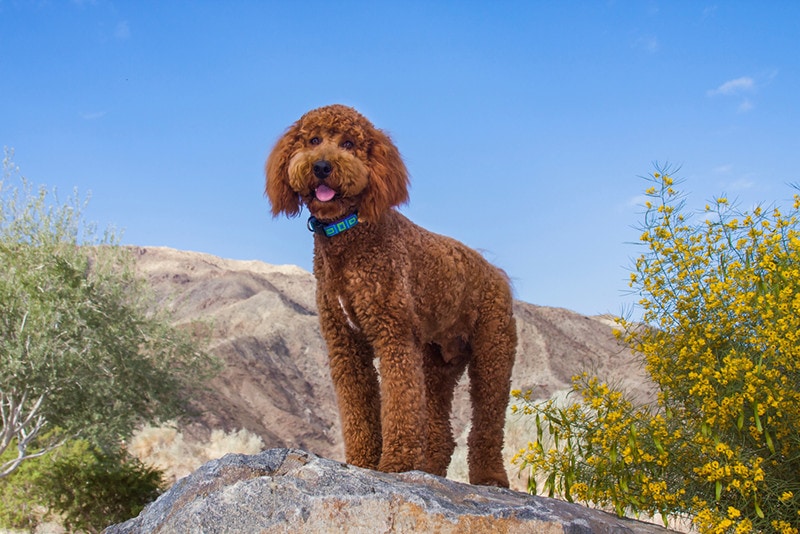
Click to Skip Ahead
Labradoodles have become a popular choice for dog lovers, thanks to their adorable appearance and friendly nature. But there’s one question that often comes up when it comes to owning a Labradoodle: do they smell more than other dogs? This is a valid concern for pet owners, especially those who are sensitive to odors or have allergies.
In this article, we’ll explore the reasons why Labradoodles may have a reputation for being smelly, and we’ll also give you some tips on how to keep your furry friend smelling fresh and clean. So, whether you already own a Labradoodle or are considering bringing one into your home, you’ll be happy to know that Labradoodles generally smell less than other dogs.
Do Labradoodles Smell?
Being a mix between a Labrador and a Poodle, they have a coat that sheds less than other dogs. They generally have a shorter coat that doesn’t have an undercoat, so the coat doesn’t hold in odors like dogs with longer coats. However, Labradoodles won’t be completely odorless. Various factors can cause a Labradoodle to smell.
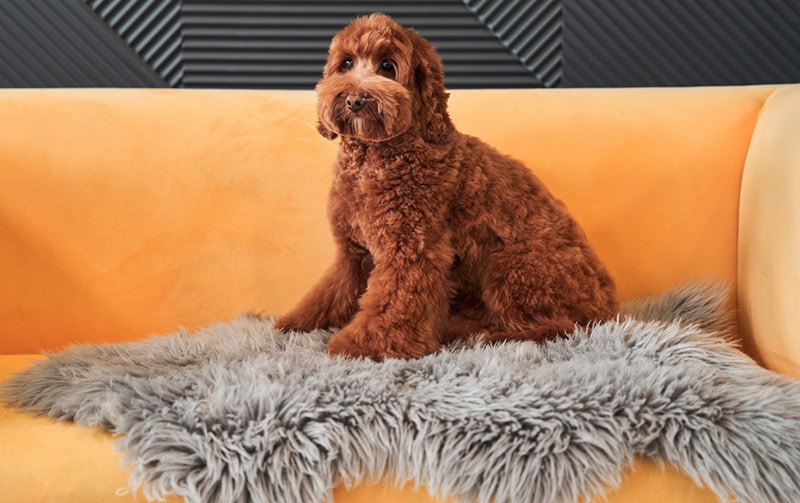
Reasons Why Some Labradoodles May Smell
While it is true that Labradoodles can have less of a smell than some other breeds, they are not completely odorless. Some Labs may have a stronger smell than others, depending on various factors. Here are some reasons why some Labs may smell more than others.
Diet
A dog’s diet can have a significant impact on their smell. If a Labradoodle is fed a poor-quality diet, it can cause them to have a stronger odor. Why? It’s because their body simply isn’t able to digest and process the food properly, which can lead to digestive issues and bad breath. For example, if your dog isn’t getting enough water, or it’s getting too much fat or unhealthy additives, this can cause digestive issues.
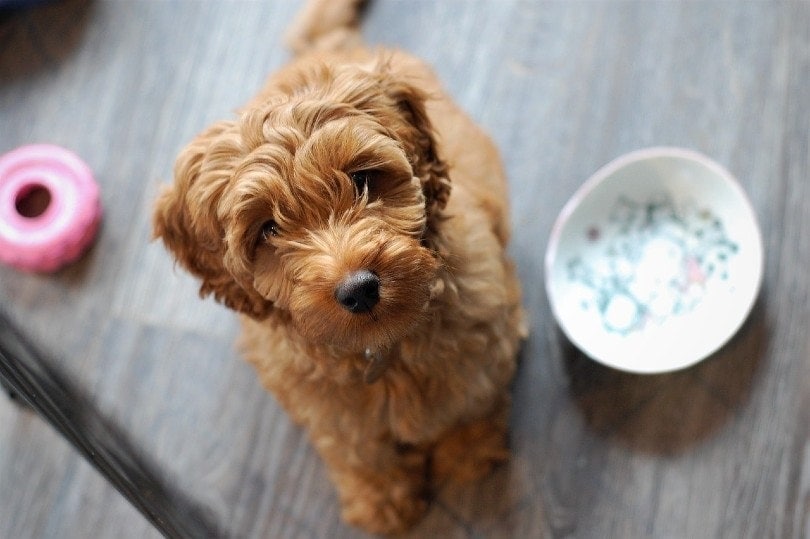
Skin Issues
Labradoodles are prone to skin issues, such as allergies and infections. If a Labradoodle has a skin issue, it can cause them to have a stronger smell. This is because their skin may produce more oils or bacteria, which can contribute to their odor. Odors can also be the result of parasitic or bacterial infections which will need to be treated. In most cases, these issues can be treated with a shot or oral medicine. General signs of skin infections will include redness, rashes, itching, and gnawing.
Ear Infections
Labradoodles are also prone to ear infections, which can cause them to have a strong smell. They have long floppy ears which makes it easy for parasites and other pests to hide inside of them if they aren’t cleaned regularly. As a result, the infection can cause discharge and inflammation in the ear canal, which can produce a foul odor. Regular ear cleaning and veterinary care can help to prevent ear infections and reduce their odor. You can clean their ears with cotton swabs and a canine ear cleaning solution.
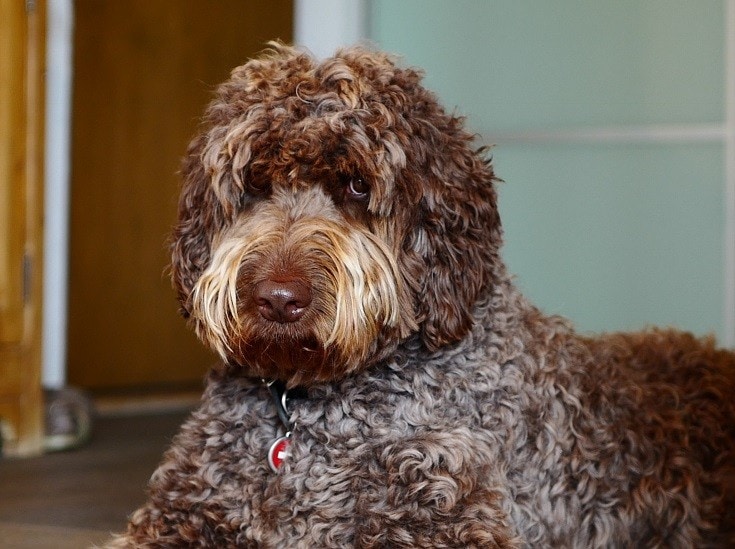
Other Factors That Affect Labradoodle Smell
There are also other factors that can affect a Lab’s natural odor. Some of these factors are controllable, while others are not, unfortunately. Here are some other factors that can affect Labradoodle smell.
Coat Type
Labs can have a range of coat types, from curly to wavy to straight. The type of coat can affect the amount of natural oils and dander that the dog produces, which can impact their smell. Curly-coated Labradoodles typically produce less dander, while straight-coated Labradoodles will usually produce more.
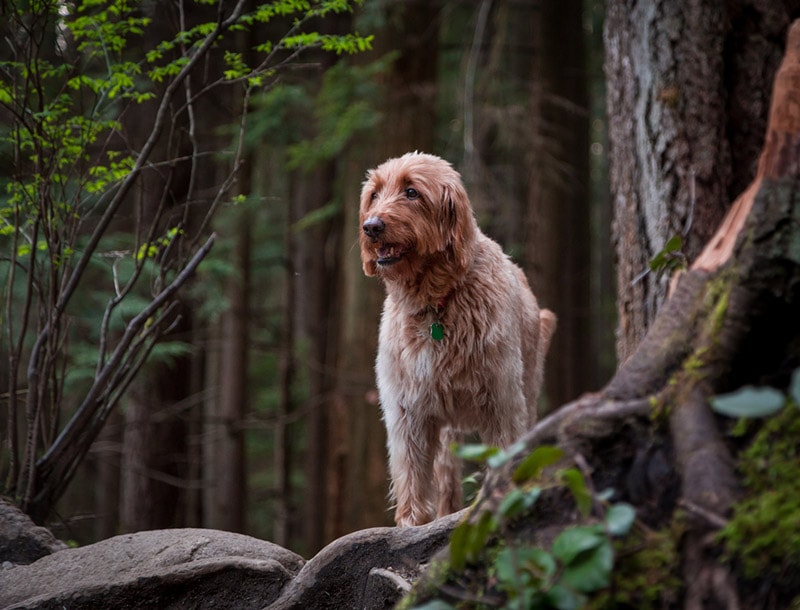
Environment
The environment (i.e., your home) that a Labradoodle lives in can also affect their smell. For example, if a Labradoodle spends a lot of time outside, they may be exposed to more dirt, pollen, and other environmental factors that can contribute to their odor. Similarly, if a Labradoodle lives in a home with smokers or other pets, their odor may be more noticeable. It’s no surprise to most dog owners that dogs that are kept outside more than inside will typically smell worse than inside dogs – especially if they don’t receive regular baths.
Lack of Grooming
Regular grooming is essential for maintaining a Labradoodle’s coat and it aids in controlling their odor. If a Labradoodle isn’t groomed regularly, their coat can become matted and tangled, which can trap dirt, oils, and other substances that can contribute to their smell. Regular bathing, brushing, and trimming can help to keep a Labradoodle’s coat clean and fresh.
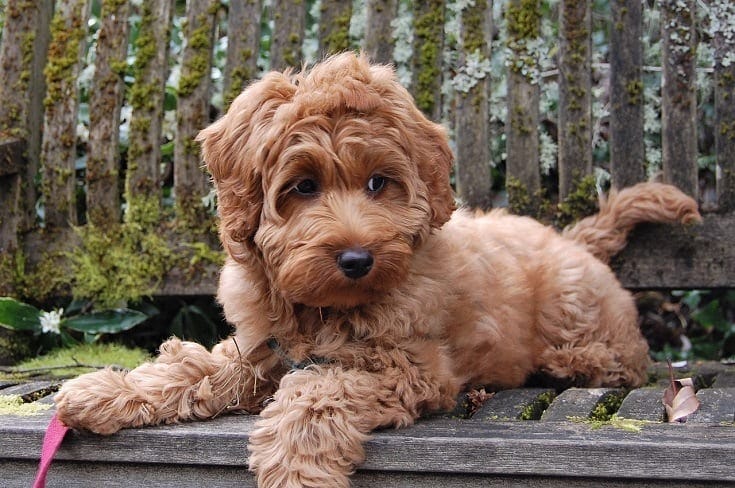
How to Reduce and Prevent Labradoodle Odor
While Labradoodles do have a natural odor, there are several things that owners can do to reduce and prevent their odor. Here are some tips.
Regular Grooming
As mentioned earlier, regular grooming is essential for controlling a Labradoodle’s odor. This includes bathing every few weeks, daily/weekly brushing, and trimming their coat on a regular basis. This also includes cleaning the ears, trimming their paw pads, and taking note of any skin infections that might be signs of parasites.
High-Quality Diet
Feeding a high-quality diet that is rich in nutrients and protein can help to reduce a Labradoodle’s natural odor. It’s crucial to choose a diet that is appropriate for the dog’s age, weight, and activity level. Dogs typically need about a gram of protein per pound of body weight, but it’s always a good idea to consult with a veterinarian to determine the best diet for your Labradoodle. This is definitely the case if your dog is suffering from any allergies or digestive issues.
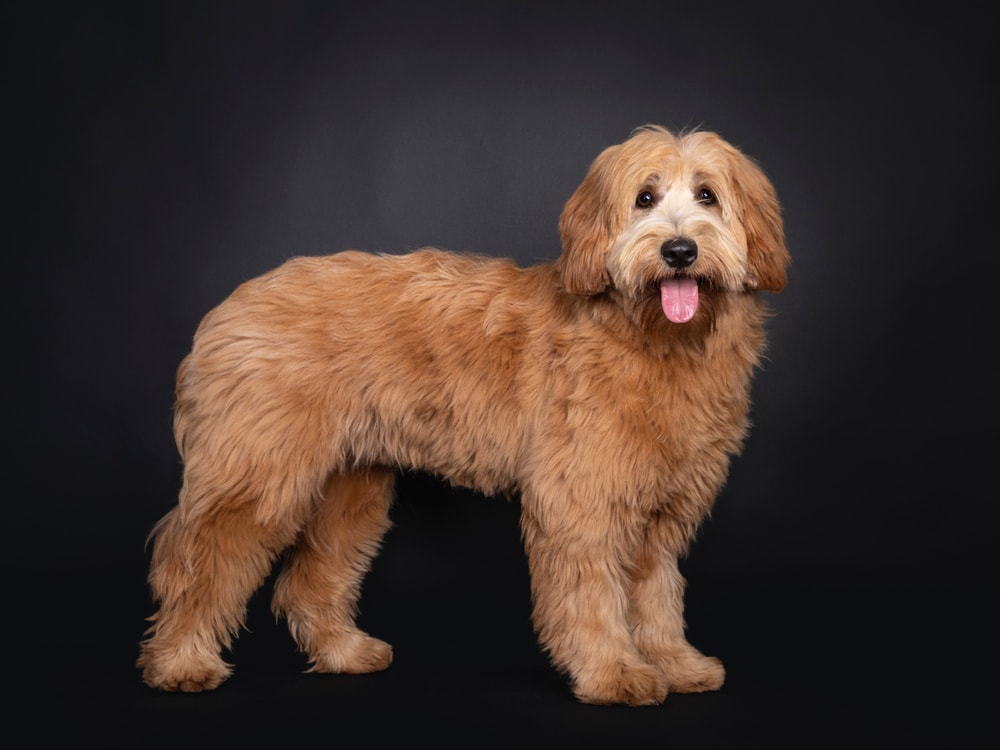
Dental Care
Proper dental care is important for reducing a Labradoodle’s bad breath. Yes, dogs are known to have breath that is, let’s say, not so fresh. But their breath shouldn’t smell up the entire room, if so, you may want to take a trip to the vet – it could be a sign of infection. Good dental care for Labradoodles includes regular brushing, dental chews (in the form of treats), and vet dental cleanings a couple times a year. A healthy mouth can help to reduce the bacteria and odor that can contribute to a Labradoodle’s smell.
Regular Veterinary Care
And then there is the routine veterinary care that will help your Labradoodle to maintain its health and prevent any issues before they start. During routine check-ups your vet can take note of your dog’s health and address any health concerns, such as lingering infections, bad smells, or other health issues, before they become big issues. Your vet may also help prescribe certain shampoos to help minimize odors with your Labradoodle.
FAQs About Labradoodles
Are Labradoodles Hypoallergenic?
Somewhat. While Labradoodles are often advertised as hypoallergenic, this doesn’t mean that they are completely allergen-free. All dogs produce some amount of dander, which can cause an allergic reaction in some people. However, Labradoodles produce less dander than some other breeds, which can make them a better option for those with allergies.
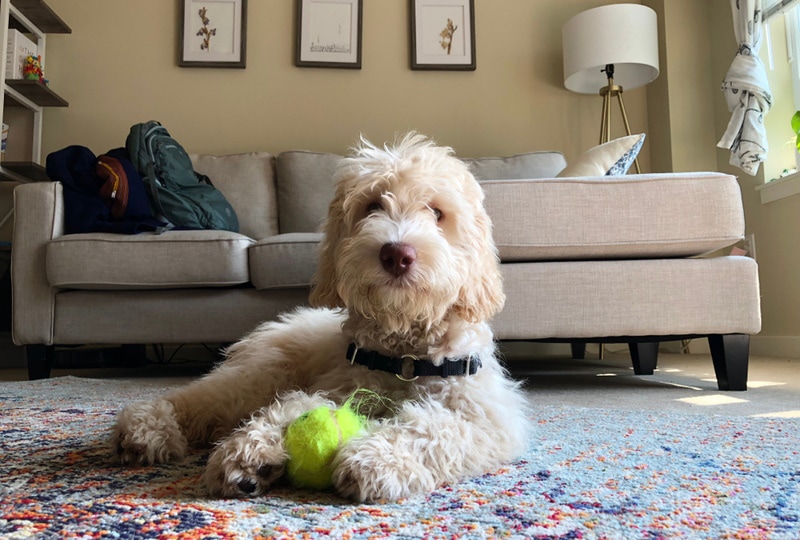
Are Labradoodles low-maintenance dogs?
While Labradoodles are generally easy to train and good with children, they are not low-maintenance dogs. They require regular grooming, exercise, and veterinary care to maintain their health and well-being. They also have a lot of energy and require daily exercise and mental stimulation.
Are all Labradoodles the same?
Labradoodles come in a variety of sizes, coat types, and temperaments. It is important to research and choose a Labradoodle that is appropriate for your lifestyle and needs. Labradoodles can range from miniature to standard size, and can have curly, wavy, or straight coats.
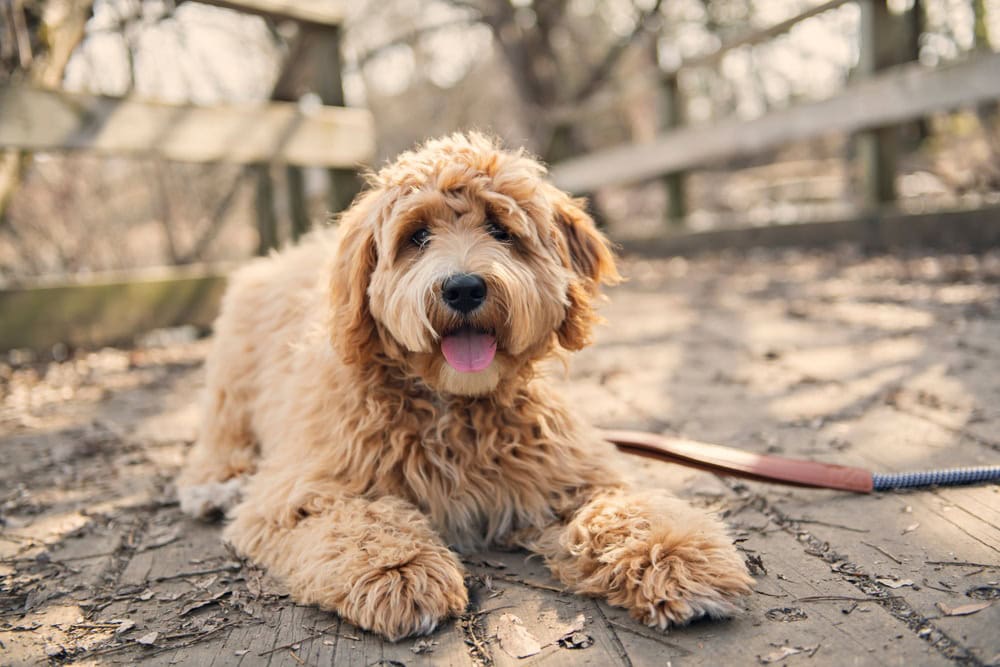
What Are Some of the Pros and Cons of Owning a Labradoodle?
Labradoodles are a popular breed for a reason. They are affectionate, loyal, and overall, a great option for families with allergies. However, there are also some drawbacks to owning a Labradoodle. Here are some pros and cons.
- Hypoallergenic breed
- Friendly and good with children
- Intelligent and easy to train
- Come in a variety of sizes and coat types
- Low-shedding and requires less home clean up
- Require regular grooming and maintenance
- Can be prone to health issues, such as skin and ear infections
- Have a lot of energy and require daily exercise and mental stimulation
- Can be expensive to purchase from a reputable breeder
Wrapping Things Up
So, yes, Labradoodles do have a natural odor, but it can be controlled and reduced with proper grooming and hygiene. The myth that Labradoodles do not smell is simply not true. These pups are a great option for families with allergies, but they do require regular maintenance and veterinary care. It is important to research and choose a Labradoodle that is appropriate for your lifestyle and needs. With proper care and attention, a Labradoodle can make a wonderful companion for many years to come.
Featured Image Credit: Danita Delimont, Shutterstock



